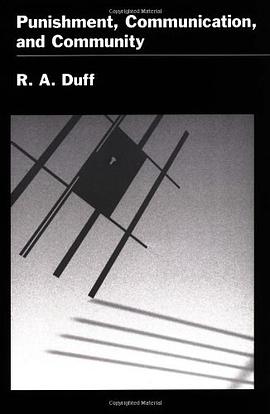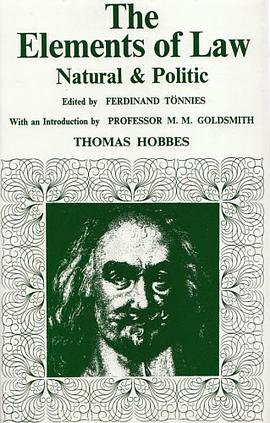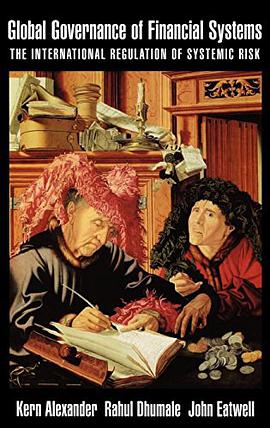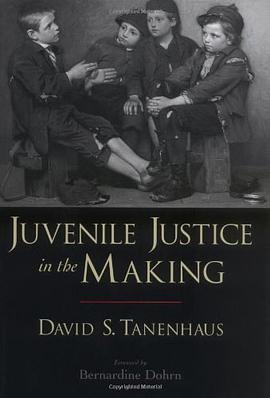

具体描述
The question "What can justify criminal punishment ?" becomes especially insistent at times, like our own, of penal crisis, when serious doubts are raised not only about the justice or efficacy of particular modes of punishment, but about the very legitimacy of the whole penal system. Recent theorizing about punishment offers a variety of answers to that question-answers that try to make plausible sense of the idea that punishment is justified as being deserved for past crimes; answers that try to identify some beneficial consequences in terms of which punishment might be justified; as well as abolitionist answers telling us that we should seek to abolish, rather than to justify, criminal punishment. This book begins with a critical survey of recent trends in penal theory, but goes on to develop an original account (based on Duff's earlier Trials and Punishments) of criminal punishment as a mode of moral communication, aimed at inducing repentance, reform, and reconciliation through reparation-an account that undercuts the traditional controversies between consequentialist and retributivist penal theories, and that shows how abolitionist concerns can properly be met by a system of communicative punishments. In developing this account, Duff articulates the "liberal communitarian" conception of political society (and of the role of the criminal law) on which it depends; he discusses the meaning and role of different modes of punishment, showing how they can constitute appropriate modes of moral communication between political community and its citizens; and he identifies the essential preconditions for the justice of punishment as thus conceived-preconditions whose non-satisfaction makes our own system of criminal punishment morally problematic. Punishment, Communication, and Community offers no easy answers, but provides a rich and ambitious ideal of what criminal punishment could be-an ideal of what criminal punishment cold be-and ideal that challenges existing penal theories as well as our existing penal theories as well as our existing penal practices.
作者简介
R.A. Duff was educated at the University of Oxford and has taught philosophy at the University of Sterling since 1970. He is the author of Trials and Punishments (1986), Intention, Agency, and Criminal Liability (1990), and Criminal Attempts (OUP 1996), contributing editor of Philosophy and the Criminal Law: Principle and Critique (1998), and co-editor, with David Garland, of A Reader on Punishment.
目录信息
读后感
评分
评分
评分
评分
用户评价
基本主张:坚持积极报应论的立场,提出以报应作为核心理念,国家(或者社群)与犯罪人就其所应得的谴责(censure)进行沟通,并且通过沟通的过程来说服犯罪人对其罪行表示悔恨(repent),进行自我改造(reform),进而与被害人达成和解(reconcile)。就论证而言,达夫试图在本书中借助政治哲学和道德哲学的分析框架提出沟通性刑罚论,这一进路值得关注。需要写书评。
评分大概是把懲罰和社區聯繫起來,可總覺得在“個人懲罰” 和 “社會譴責”上搖擺不清,那些窮凶惡極的人,會走到那一步,跟他所處的家庭和社會似乎都脫不了關係,那難道只有“他”需要借刑罰來認識自己的錯麼?
评分基本主张:坚持积极报应论的立场,提出以报应作为核心理念,国家(或者社群)与犯罪人就其所应得的谴责(censure)进行沟通,并且通过沟通的过程来说服犯罪人对其罪行表示悔恨(repent),进行自我改造(reform),进而与被害人达成和解(reconcile)。就论证而言,达夫试图在本书中借助政治哲学和道德哲学的分析框架提出沟通性刑罚论,这一进路值得关注。需要写书评。
评分大概是把懲罰和社區聯繫起來,可總覺得在“個人懲罰” 和 “社會譴責”上搖擺不清,那些窮凶惡極的人,會走到那一步,跟他所處的家庭和社會似乎都脫不了關係,那難道只有“他”需要借刑罰來認識自己的錯麼?
评分基本主张:坚持积极报应论的立场,提出以报应作为核心理念,国家(或者社群)与犯罪人就其所应得的谴责(censure)进行沟通,并且通过沟通的过程来说服犯罪人对其罪行表示悔恨(repent),进行自我改造(reform),进而与被害人达成和解(reconcile)。就论证而言,达夫试图在本书中借助政治哲学和道德哲学的分析框架提出沟通性刑罚论,这一进路值得关注。需要写书评。
相关图书
本站所有内容均为互联网搜索引擎提供的公开搜索信息,本站不存储任何数据与内容,任何内容与数据均与本站无关,如有需要请联系相关搜索引擎包括但不限于百度,google,bing,sogou 等
© 2026 onlinetoolsland.com All Rights Reserved. 本本书屋 版权所有



















